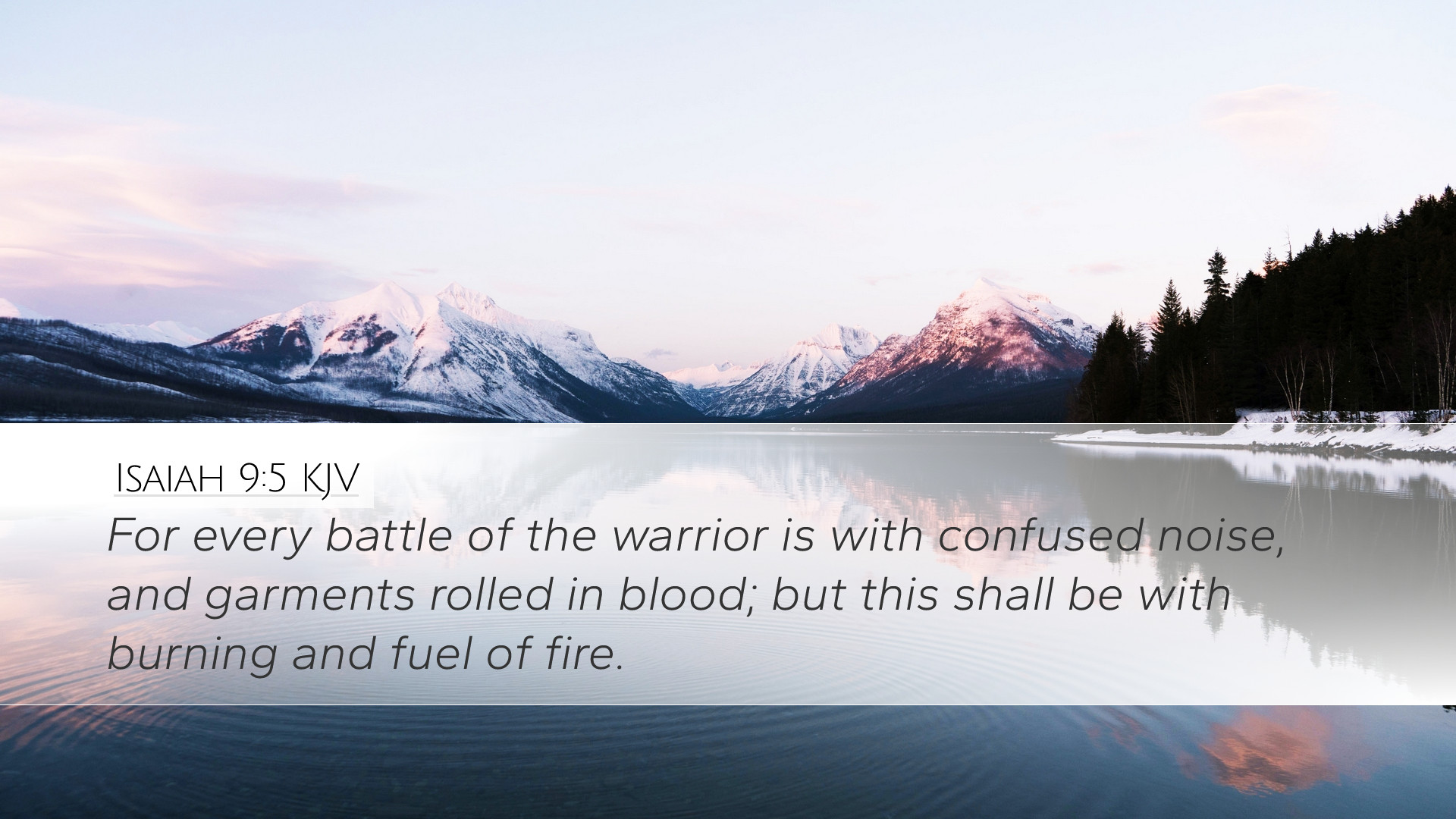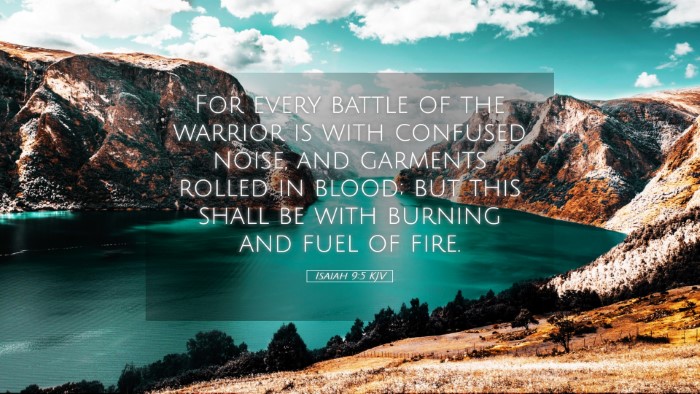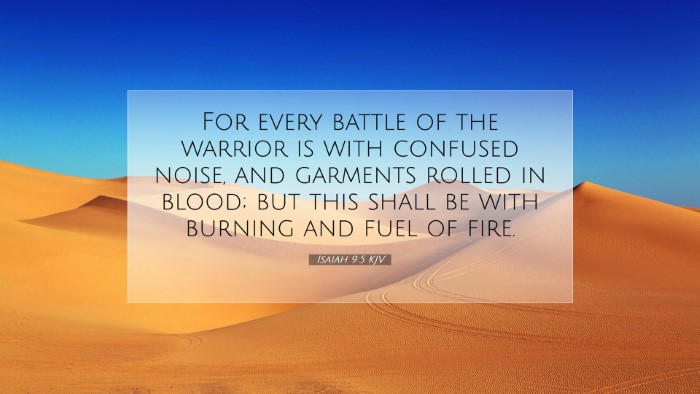Commentary on Isaiah 9:5
Verse Reference: Isaiah 9:5 (KJV) - "For every battle of the warrior is with confused noise, and garments rolled in blood; but this shall be with burning and fuel of fire."
Introduction
This verse from Isaiah is a profound revelation about the nature of peace and the coming Messiah. It marks a significant transition from the tumult of war to the promise of peace, capturing the hope for a future where conflict shall cease. The insights provided by renowned biblical commentators such as Matthew Henry, Albert Barnes, and Adam Clarke give depth to this pivotal scripture.
Exegesis of Isaiah 9:5
Contextual Background: The chapter of Isaiah 9 begins with a prophecy concerning the coming of a great light that would bring joy and gladness. This light symbolizes the arrival of the Messiah, who would usher in a reign of peace. The preceding verses speak of the gloom that would end, contrasting the joys of the future with the struggles of the past.
Matthew Henry's Insights
Matthew Henry describes this verse as a stark contrast between the chaos of man-made conflict and the divine peace that the Messiah will bring. He emphasizes that the “confused noise” refers to the tumultuous sounds of war, the clamor of battle cries, and the devastation depicted by “garments rolled in blood.”
- Imagery of War: Henry notes that these images remind the reader of the serious nature and cost of warfare, while simultaneously highlighting the contrast with the peace that follows Christ's coming.
- Promise of Peace: The latter part of the verse emphasizes that the nature of the salvation brought by the Messiah will be as different from warfare as fire is from water—intense yet purifying. The imagery of “burning and fuel of fire” suggests a powerful transformative act, symbolizing purification and the complete removal of conflict.
Albert Barnes' Perspectives
Albert Barnes focuses on the prophetic elements of this scripture, interpreting it as a declaration of hope. He writes about the transition from days of distress to the days of deliverance, highlighting that the phrase “this shall be” refers to a future time of salvation that surpasses previous struggles.
- Nature of the Messiah: Barnes elucidates that the Messiah is portrayed as one who will take away the burdens of warfare, leading to a new era characterized by divine peace and stability.
- Contrast of Methods: He elaborates on the contrast presented in this verse—the previous methods of human struggle through war will give way to a method of peace through divine intervention, which will be clearly evident during the reign of the Messiah.
Adam Clarke's Commentary
Adam Clarke provides a thorough analysis of the linguistic and theological implications within this text. He highlights the prophetic nature and the stark contrast it draws between the old (the eras of conflict and turmoil) and the new (the coming of Christ and His kingdom).
- Theological Implications: Clarke asserts that this prophetic declaration is foundational to understanding the nature of Christ’s kingdom—a kingdom that is established not through force but through the transformative power of God's love and grace.
- Symbolism of Fire: He explains that the “burning and fuel of fire” indicates not just judgment but also purification, analogous to how fire purifies metal. This signifies that through the Messiah, believers are refined and restored to a state of holiness and peace.
Theological Reflections
The reflections offered by these commentators bring forth several theological truths necessary for understanding Isaiah 9:5:
- Eschatological Hope: This verse points to a greater eschatological hope, promising that the reign of the Messiah will mark the end of strife. It reassures believers of the ultimate peace that lies in the future.
- The Role of the Messiah: The Messiah is revealed as a figure of salvation and peace, contrasting the brutal realities of sin and violence in the world. His coming heralds the restoration and transformation of humanity.
- Christian Living: The imagery challenges believers to live in light of this peace. Christians are called to be agents of reconciliation, embodying the peace that comes through Christ in every aspect of life.
Conclusion
Isaiah 9:5 encapsulates a powerful message of hope and transformation. It speaks not only to the historical context of Israel but offers profound insights into the nature of God's salvation through Christ. The combined insights from Matthew Henry, Albert Barnes, and Adam Clarke provide a rich tapestry of understanding that reinforces the depth of God’s promise of peace and the significant role of the Messiah. For pastors, students, theologians, and scholars, this verse serves as a reminder that amidst the chaos of life, divine peace is both a present reality and a future hope.


